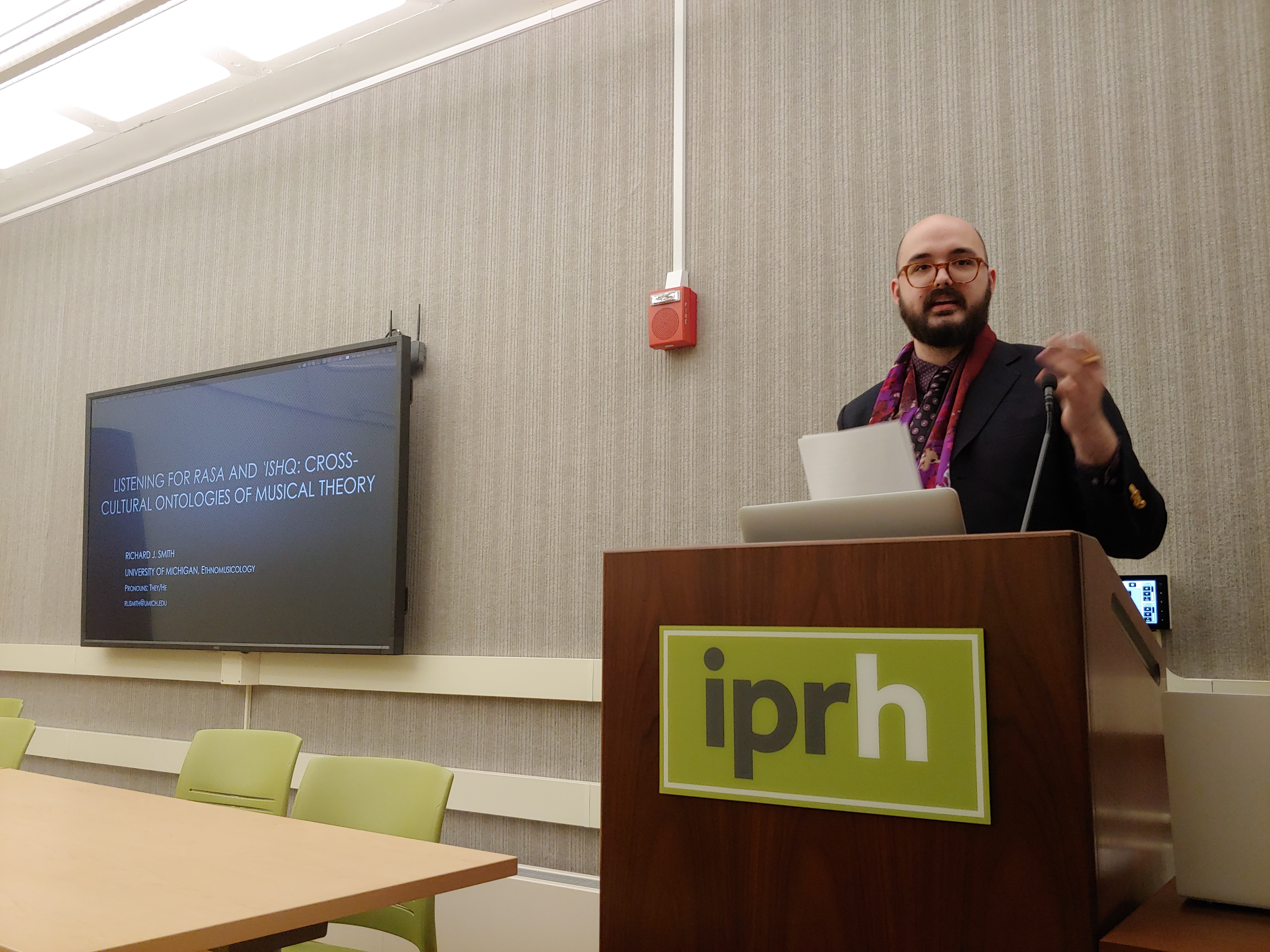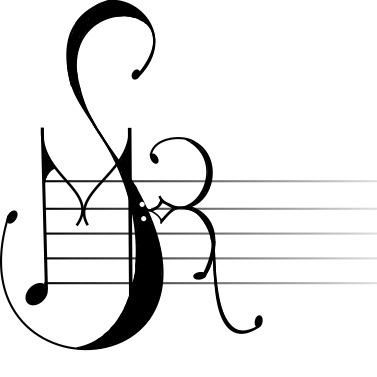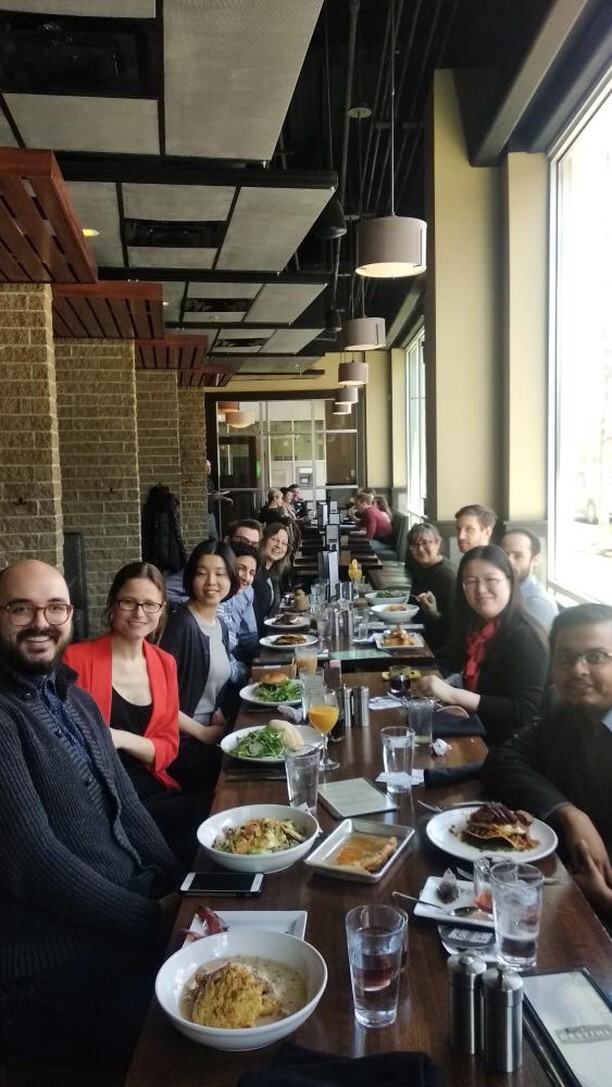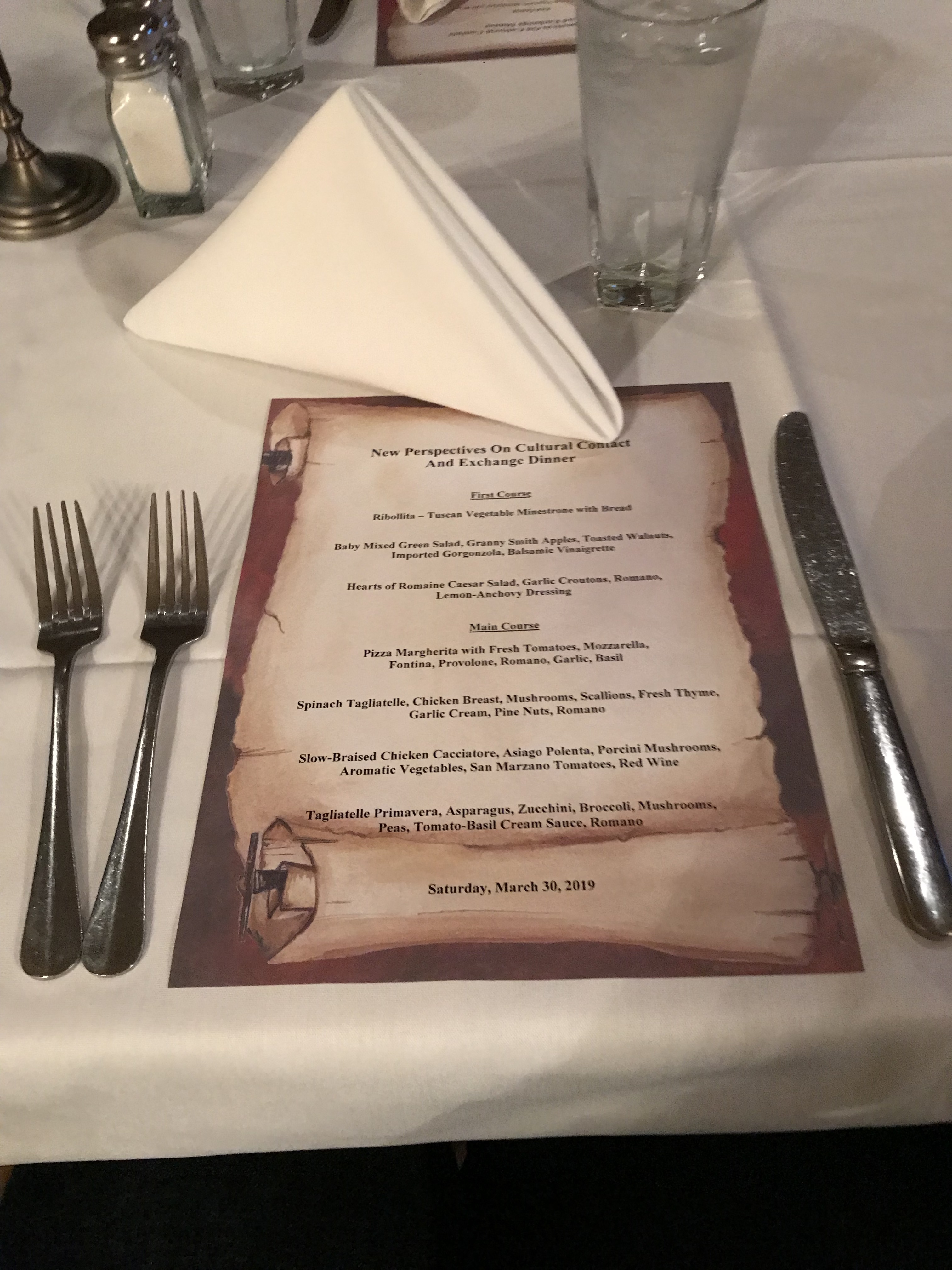
Recently, Ethnomusicology PhD Candidate Richard Smith presented at an interdisciplinary faculty and graduate colloquium at the University of Illinois Urbana Champaign to discuss "New Perspectives of Cultural Contact and Exchange." Richard's paper "Listening for Rasa and 'Ishq: Cross-Cultural Ontologies of Musical Theory (abstract below) looks at ways listener-focused analysis can help unearth affective bridges across religious musical epistemologies. In addition to the colloquium, Richard enjoyed his free rental car upgrade which left him driving in a high-tech BMW (sadly unpictured) where he subsequently was afraid to press buttons as each time he did, the entire dashboard and lighting system changed.
—Richard Smith
Abstract:
Qawwali music from North India and Pakistan is a Sufi Muslim genre known for its hybridization of Arabo-Persian and North Indian (Hindustani) musics; yet, despite admitted musical hybridity, many scholars divorce qawwali from discussions of North Indian music and culture, viewing it predominantly as a foreign [read: Muslim] genre that has, over time, adopted traditional Hindustani elements rather than one that was birthed by them. The central affective quality of qawwali known as ʿishq (Arabic: love) is believed to be fundamentally different from rasa (Sanskrit: juice), the embodied, often considered affective, knowledge of Hindustani raga. This approach not only categorizes them into contrasting religious paradigms, but does so in a way that privileges the performer. Despite the merits found in emphasizing a performer’s agency, which situates the compositional practices of raga and qawwali in their own respective musico-cultural terms, I argue that this one-sided analysis foregoes historical models of listening and hearing in South Asia which maintain that auditory reception and the connoisseur, or rasika, are central to North Indian music.
In the spirit of Christopher Small’s work on musicking, I examine the works of Regula Qureshi (1986), Judith Becker (2004), and Katherine Schofield (2015), in relation to Anahid Kassabian’s (2013) affective theory of distributed subjectivity to reevaluate qawwali music and its concept of ʿishq in relationship to rasa as elements representative, not as previously believed of different religious epistemologies, but of a shared cultural practice of listening whose descriptive vocabularies have lost meaning over time. I argue that rather than mere concerns of affect, rasa and ʿishq are highly related forms of ontological discourse. My goal is to recast qawwali music as not simply Sufi, or by extension, Mughal [read: foreign], but as pointedly North Indian, lessening the distance believed to exist between two major conflicting religio-cultural musical communities.
Recent Posts
SMR to Host Midwest Graduate Music Consortium 2025 Conference – January 13, 2025
SMR Welcome BBQ at County Farm Park – October 01, 2024
Julian Grey defends dissertation – June 05, 2024
Michaela Franzen defends dissertation – May 21, 2024
Kai West defends dissertation – May 16, 2024
Micah Mooney and Carlos Pérez Tabares present at Music Theory Midwest – May 12, 2024
SMR end-of-year round-up at County Farm Park – April 25, 2024
SMR hosts Research Showcase – September 29, 2023
 Society for Music Research
Society for Music Research


